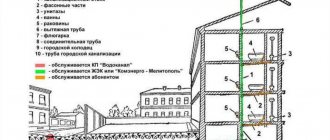The procedure for organizing an HOA is prescribed in Art. 136 Housing Code of the Russian Federation.
The most important thing when organizing an HOA and its subsequent activities is the concern of the homeowners, because in most cases, the creation of an HOA is hampered by the busyness of the owners and the reluctance to shoulder the hassle associated with its creation. Therefore, to organize a HOA, you need to create an initiative group of residents of the house, which will participate in events related to the creation of an HOA.
basic information
The abbreviation "HOA" is a non-profit organization that stands for "homeowners' association." The purpose of the creation is the organized management of the property of the house with responsibility for its technical serviceability and maintenance of order. Before signing an agreement and entrusting the care of the house to a specific partnership, it is worth finding out in more detail what membership in the HOA provides, whether there are alternative service options, etc.
The powers of the organization are determined in accordance with Art. 135 of the Housing Code of the Russian Federation, and creation is possible only with the consent of the owners, obtained at a general meeting of the house. The law does not establish time limits for establishing an organization. Article 139 of the housing legislation defines the right to create a HOA even at the construction stage. Subsequently, the organization can be reorganized into a housing cooperative on the basis of Article 140 of the Housing Code of the Russian Federation.
If the owner has not previously dealt with the HOA, deciphering the word will help determine the purpose of the organization, but the degree of responsibility and authority will have to be clarified through the statutory documents and the agreement signed with the residents.
Many citizens doubt the legal grounds for transferring MKD affairs to a company, not knowing how to determine whether an HOA is a legal entity or not. It is recommended to request the Charter of the institution and clarify the issue of its activities. An HOA is definitely a legal entity, but its purpose is not at all related to commercial activities and profit-making.
When answering the question of what an HOA is, apartment owners are advised to refer to legal documents, which directly state that the organization does not operate for profit and is not aimed at activities other than measures to improve the quality of living and care for each owner of the premises.
The partnership has a seal, an account has been opened for it, and a legal address has been registered. Expenses for homeowners are determined in receipts according to the HOA accruals. In turn, the organization is guided by the law and the agreement with property owners, determining the amount of payment for each utility resource or service provided.
Defaulters should remember that failure to make payments on time will result in exclusion from the list of participants, and therefore the right to use the services is terminated.
HOA is just one of the options for forms of management. At the general meeting of residents, any other form can be chosen:
- Management Company;
- housing construction cooperative;
- direct control.
The larger the house, the more difficult it is to manage, so managing a high-rise building on your own is extremely difficult, because on behalf of the residents you have to resolve issues with the maintenance of common property.
The choice of management form is influenced by:
- level of solvency of residents;
- degree of financial responsibility;
- availability of working resource consumption meters.
The choice is also limited to the list of already existing partnerships due to certain restrictions.
Features of management of an apartment building
HOAs as a way to manage an apartment building have proven to be effective, but large households have their own characteristics. Article 136 of the Housing Code of the Russian Federation provides for the possibility of creating only 1 partnership for 1 apartment building.
At the same time, residents of several buildings have the right to unite to create one HOA. The law allows for the organization of maintenance of several buildings if they are adjacent to each other or are part of a single site.
An HOA cannot merge with other partnerships, but an alliance may be formed to serve multiple homes.
When transferring powers for the maintenance and management of apartment buildings, residents are responsible for monitoring the implementation of mandatory maintenance activities for the building and property in it. Apartment owners have the right to choose a management organization and change it if the fulfillment of obligations under the contract is of poor quality.
Advantages and disadvantages of such a community
The main advantages of a housing association as a form of organization of property owners include:
- the possibility of direct control by residents;
- low management costs;
- closeness of management to residents and understanding of their problems.
Since governing bodies are elected directly from the residents , they are more trustworthy. In addition, unlike management companies, housing associations do not provide for making a profit. The chairman may have a salary of 15-30 thousand rubles, but it is incomparable with the profit of large management companies, which is formed from the funds of residents.
HOAs also have a number of disadvantages:
- possible low competence of management;
- sluggishness of the structure.
It is not often that the elected chairman has the necessary work experience and knowledge of housing legislation, because of this it is necessary to hire a third-party specialist, and then the expenses of the HOA members differ little from the expenses incurred by the owners who have chosen the management company.
Bringing together half of all owners is often difficult, especially in large organizations, because of this, an important decision can take a long time to make.
Important! In order to make any significant decision in the partnership, it is necessary to convene a meeting, at which at least half of all owners of apartments in the building must appear (clause 3 of Article 146 of the Housing Code of the Russian Federation).
The principle of operation of the HOA
To understand how well the partnership copes with its obligations, it is necessary to find out how the HOA works and what the organization is obliged to do for its home.
- HOA membership: what is important to know
The services of the partnership are available only to its members, i.e. citizens who voted for the creation of a service organization. The owners are determined to be members of the board and the chairman of the board. Voting at the general meeting is used to select the composition of the board.
After determining the composition, it is necessary to prepare and approve the statutory documents. The Charter includes all the necessary information about the house, the list of founders, and the responsibilities of the company. When signing an agreement with residents, they proceed from the provisions of the Charter and the current housing legislation.
Next, you must register the company with the tax authority. Further, the interaction of residents and the fullness of authority are regulated by an agreement signed with the apartment owners.
Expenses for HOAs involve payments for utilities and additional expenses for landscaping. The amount of contributions is determined taking into account the total amount distributed to all owners of apartment buildings. A professional accountant is hired to organize correct calculations and reporting.
Members of the partnership have the right to independently decide how to care for the property and equipment of the house. Whether to paint the entrances, repair the staircases, or install a barrier. Decisions are made jointly, and then costs are calculated and distributed among the contributions of each owner.
Terms of reference
The legislation defines the functions of the HOA as follows:
- Concluding agreements with service and utility providers.
- Preparation of estimates.
- Involvement of hired workers and organizations to carry out activities for the maintenance and repair of property.
- Acquisition of property for the needs of the organization.
- Transfer of part of the common property to third parties for use.
- Ensuring order in the house and surrounding area.
- Sanitation control.
- Organization of children's and sports grounds, parking spaces for residents.
Apartment owners have their own rights in relation to real estate:
- Disposal of property at home.
- Making proposals to improve the quality of life.
- Gaining access to common property.
- Selecting the board of directors from among the participants.
The full list of obligations and powers of the parties is determined by the HOA agreement.
Financial transparency
The activities of the HOA are more transparent for owners:
- annual audits are provided;
- you can familiarize yourself with the financial statements of the partnership;
- by decision of the meeting, an audit can be carried out;
- reports are not just posted in the Housing Information System, but are approved at a general meeting of members;
- personnel costs are visible in the budget approved annually at the meeting; the chairman’s remuneration is approved (or not approved) by the meeting of members.
With a management organization, its financial and economic activities are more hidden from the owners: usually they can only see the justification for the amount of fees, certificates of work performed, and the company’s annual report. The accounting reports of the management company can also be viewed in the Housing and Communal Services GIS, but since the company has many houses and other activities are possible, less useful information can be extracted from such reports.
Responsibility of the organization
Homeowners' associations and management organizations may receive a fine - both for violations during the management of the house, and for extraneous violations, for example, violations of labor and tax laws.
The partnership almost always pays these fines with money collected from the owners. If the fine is significant, for example, 300,000 rubles, then less money will be left for housework (at best), or the partnership may go bankrupt. The same situation arises when it comes to compensation for damage caused, for example, by flooding of an apartment.
A management organization can engage not only in managing houses, but also in other income-generating activities. She has more sources from which she can pay a fine or compensate for damage. Even if she uses the owners’ money for this, it is financially invisible to the residents. Among the disadvantages of having a management organization: fines for violating licensing requirements when managing apartment buildings are higher than the fines for HOAs provided for in other articles of the Code of Administrative Offenses of the Russian Federation for similar violations.
Table with comparison results
| Signs | UK | HOA |
| board size | — + (in a small house) | + — (in a small house) |
| transparency | — | + |
| efficiency of use of money | — | + |
| professionalism | + | — ± (in a big house) |
| responsibility of the organization | ± | ± |
| management responsibility | ± | ± |
| participation of owners in house management | ± | + |
| general meetings | — | ± |
| owner rights | ± | + |
| Possibility of change in case of poor performance | ± | ± |
Useful tips for every day
Here are a few more practices from the New House Management Company that help to effectively fulfill their responsibilities under management contracts and maintain good relationships with residents of apartment buildings:
- Using scheduler programs and applications through which tasks are set. The manager can even set tasks from the phone and monitor the progress of their implementation, as well as plan the working hours of employees.
- Sending payment documents by email without a paper copy. A very small percentage of residents of apartment buildings use the personal account of the GIS Housing and Communal Services: it is much more convenient for owners to receive a bill for housing and communal services directly to their email.
- Creation of an effectively working MKD Council, which will become an assistant to the management company in solving a variety of problems.
- B2B cooperation with third parties on mutually beneficial terms. As an example, installation of CCTV cameras in the yard at the expense of the Internet provider. In response, the management company and the owners offer the telecom operator preferential conditions for the placement of equipment or other privileges.
Responsibility of management and dependence of the house on it
The leadership of a partnership can be changed at a meeting of members. The owners cannot change the director of the management organization. When the chairman of the board changes, the new management of the HOA may try to recover through court the losses that the old chairman caused through his actions. This to some extent prevents abuses in the partnership.
On the other hand, the work of the partnership and the management of the house greatly depends on the life of the chairman. If he decides to move, or something happens to him, then a new good chairman is often not found: few people want to take responsibility. In such a situation, they can choose just anyone, and the partnership will turn from good to bad.
Related questions
Here, at the meeting, it is imperative that all those present must agree on the Charter of the partnership and have it notarized. To avoid any suspicions or questions afterwards, it is better to invite a notary directly to the meeting in order to legitimize this document on the spot immediately after its acceptance by the public.
The final stage of the meeting is the drawing up of a protocol, which includes all the issues discussed, those present and the results of voting regarding the problems of the HOA. This action must be carried out every time a general meeting is convened. The protocol must be notarized.
Authority
The powers of the partnership board are specified in Article 148 of the Housing Code of the Russian Federation. These include:
- Strict compliance with the requirements of current legislation and the HOA Charter.
- Monitoring the process of making mandatory contributions and payments by organization participants.
- Preparation of budget documentation on the income and expenses of the partnership for the year, drawing up financial reports and presenting them to the general meeting.
- Direct management of the residential area or the conclusion of relevant contracts.
- Hiring and firing specialists to service an apartment building.
- Conclusion of contracts for maintenance, repair and operation of common property.
- Maintaining a register of organization participants, office work, financial accounting and reporting.
- Convening, organizing, holding and documenting the general meeting.
This list is not exhaustive. The rules of the Charter may vest the board of the partnership with other powers that do not contradict the requirements of current legislation.
Professionalism
To effectively manage a home, you need knowledge in completely different areas, for example, construction, law, accounting. The management organization has a whole staff of necessary specialists who service many houses at once.
In an HOA, hiring many professionals to service one home can be expensive. Therefore, often in small houses the chairman of the board is both a Swede, a reaper, and a trumpet player, which affects the quality of work. This disadvantage disappears in large houses or in residential complexes, as well as with the involvement of a “professional” HOA manager.
Participation of owners in house management
In an HOA, owners have more opportunities to manage their home:
- you can join the board or even head a partnership;
- there is an opportunity to become a member of the audit committee to monitor the work of the board;
- the presence of an HOA in a house does not negate the opportunity to hold a meeting of owners and, if necessary, change the way the house is managed.
Under a management organization, owners can only be elected to the house council with modest powers or to the owners' commission, which are only collegial advisory bodies.
Among the disadvantages of management in an HOA: owners need energy, time and other opportunities to manage the house and the partnership. At the same time, few people want to work for free, and the members of the partnership are not always ready to approve the remuneration of the board or at least its chairman, because these are additional expenses.
If the company or partnership is performing poorly
The above comparison of the HOA and the management organization may not correspond to reality if the partnership or company performs poorly, violates the law, or embezzles the owners’ money. Someone tries to solve these problems with complaints, but complaints often lead to fines, which are paid from the owners' money. Therefore, you can try to take more radical steps: - with a management organization - change the company or management method (to an HOA); - in the case of an HOA - change the management of the partnership or the method of managing the house (to a management organization).
With both methods of government and with any chosen course of action, temporary anarchy or confusion is possible: those who manage the house in bad faith rarely want to give up power peacefully. The owners do not understand who to pay, who maintains the house. Payment collection rates are falling, and so is the quality of management.
General meetings
In a building with a management organization, meetings of owners are held. In a house with an HOA, there are meetings of owners and meetings of members, while the approval of the amount of fees and the re-election of the board of the association take place precisely at the meeting of members.
Under a management organization, owners rarely hold annual meetings, although this responsibility lies with the owners. In the HOA, the board regularly holds annual (reporting) meetings: it is necessary to approve the work plan, budget, amount of fees, and also re-elect the board and audit commission every two years.
In a partnership, it may be difficult for the owner to initiate a special meeting of members: sometimes the bylaws provide that a meeting of members can be initiated by a group of members with 10% or 20% of the votes throughout the house. In a management organization, a meeting of owners can be initiated by any owner.
The decision on the amount of fees in the partnership is made by a smaller number of votes, since only members of the HOA vote for it. This can be considered both a plus for houses with busy owners who have no time or are too lazy to vote, and a minus for supporters of a democratic management style.







